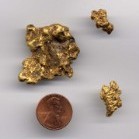Steve's Insanely Hot GPZ 7000 Settings
-
Similar Content
-
- 44 replies
- 4,098 views
-
- 5 replies
- 639 views
-
Avantree Interested In Hearing From You 1 2 3 4 8
By Wiggins,
- minelab gpz 7000
- headphones and audio
- (and 1 more)
- 78 replies
- 9,998 views
-
- 19 replies
- 3,106 views
-
- 24 replies
- 4,372 views
-
Nugget Finder Z-search 3 Different Version Coils? 1 2 3 4
By Gerry in Idaho,
- minelab gpx
- minelab gpz 7000
- (and 1 more)
- 37 replies
- 5,349 views
-
-










Recommended Posts
Create an account or sign in to comment
You need to be a member in order to leave a comment
Create an account
Sign up for a new account in our community. It's easy!
Register a new accountSign in
Already have an account? Sign in here.
Sign In Now